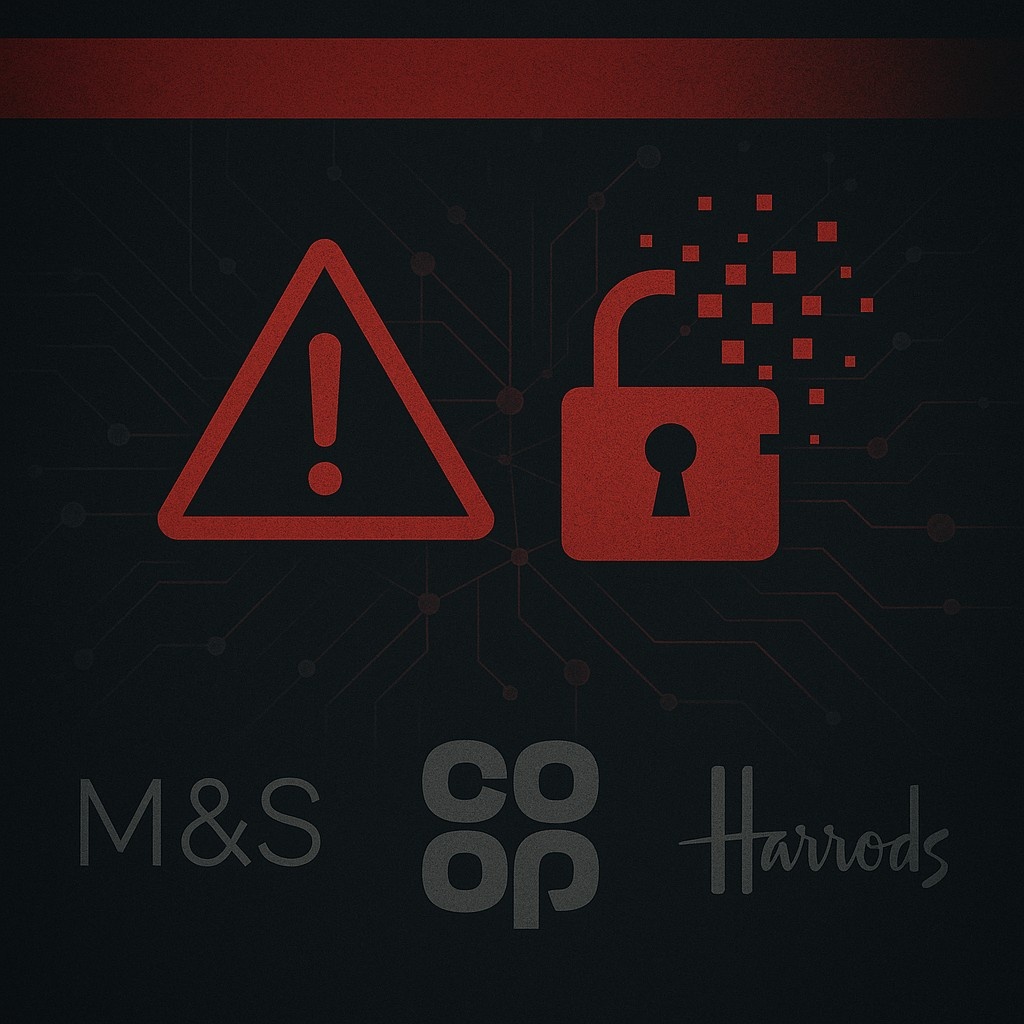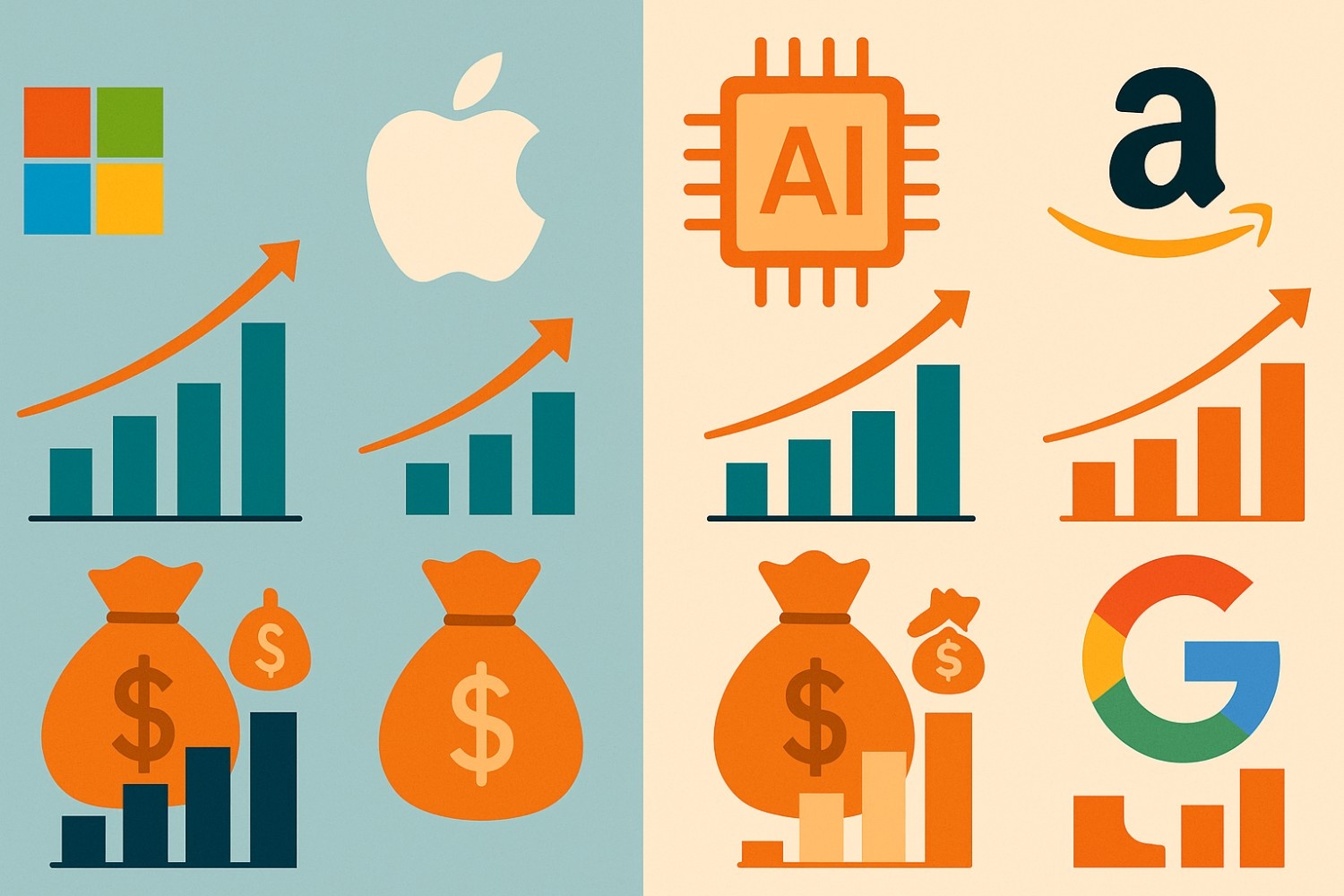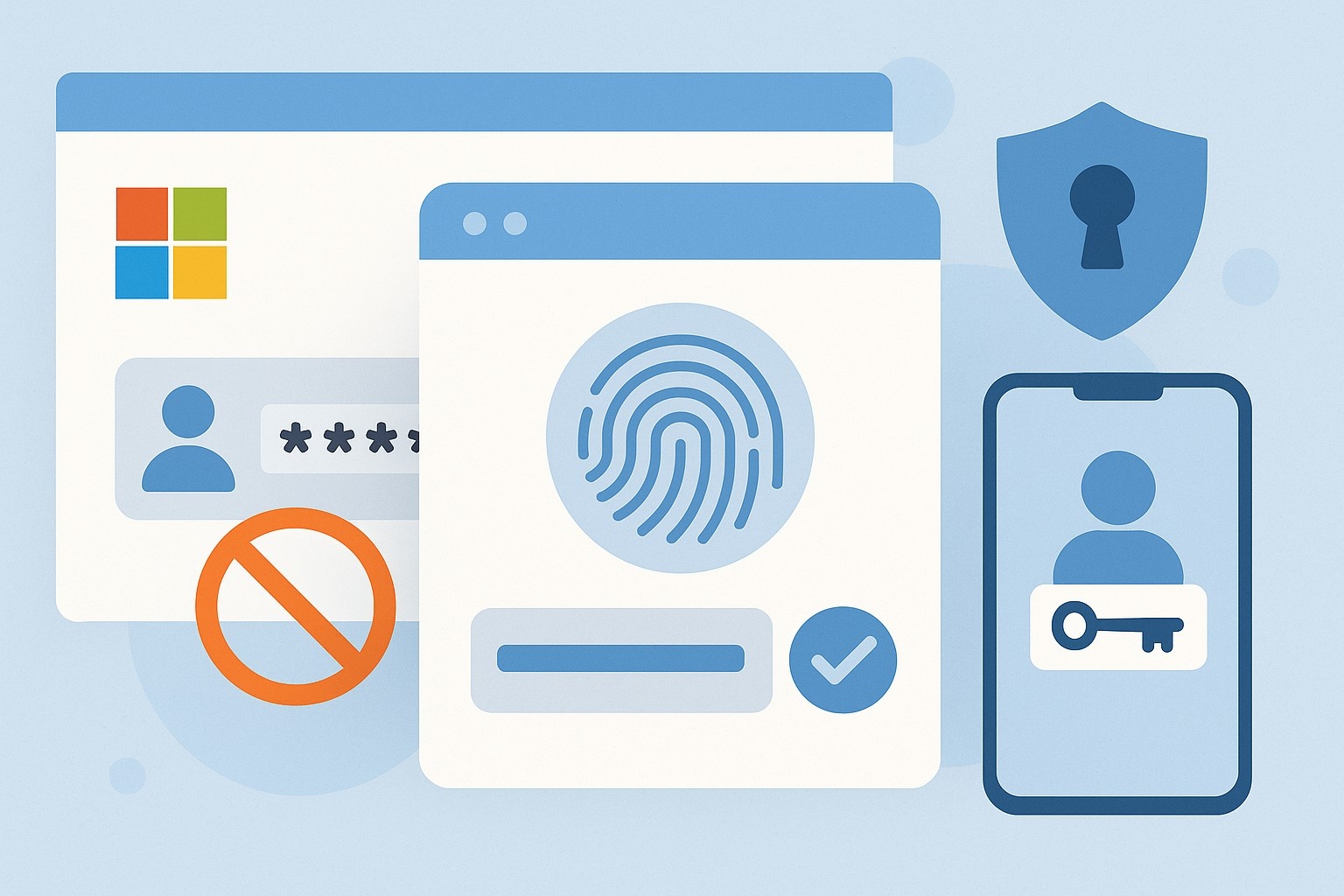Cyberattacks Slam Major UK Retailers, Exposing Fragile Digital Defenses
In late April and early May 2025, three of the UK’s most recognized retailers — Marks & Spencer, Co-op, and Harrods — were hit by coordinated cyberattacks. The incidents weren’t isolated, random events. They exposed how vulnerable even the biggest and most digitally equipped companies remain in the face of modern hacking tactics.
This wasn’t just a tech failure. It was a wake-up call — for the retail industry, for customers, and for the UK government.
Marks & Spencer Suffers Massive Ransomware Attack
The most serious blow came to Marks & Spencer (M&S), one of the UK’s flagship retail brands. Over the Easter weekend, the company was targeted by a ransomware group called Scattered Spider, which has gained a reputation globally for going after major corporations.
The attack took down:
- Contactless payment systems
- Online ordering
- Internal IT operations
- Even parts of the HR and logistics networks
M&S confirmed the breach internally within hours, but it took days before customers noticed the full scale. By the following week, store managers were reporting millions in lost sales, and estimates later suggested the company suffered nearly £40 million in losses in just one week.
While the hackers reportedly demanded a ransom, M&S has refused to disclose whether negotiations took place.
Co-op Confirms Customer Data Was Exposed
Just days after the M&S breach hit headlines, Co-op came forward with its own cybersecurity incident — this time focused on customer data.
Attackers gained unauthorized access to databases containing the personal details of:
- Millions of members and past members
- Names
- Email addresses
- Dates of birth
- Physical addresses
No payment or financial data was leaked, according to the Co-op, but the damage is already done. With phishing scams on the rise, security experts say even basic identity details are valuable to cybercriminals building social engineering campaigns.
Co-op has since issued alerts asking users to:
- Reset passwords
- Avoid suspicious emails
- Enable two-factor authentication on all accounts
The company also promised an external audit of its security systems and said it’s cooperating fully with UK cyber authorities.
Harrods Escapes the Worst — But Not Unscathed
Luxury department store Harrods confirmed in early May that it had experienced a cyber intrusion attempt, though internal systems reportedly stopped the attack before data was compromised.
Still, the company responded aggressively:
- Restricted internet access across internal systems
- Temporarily locked down portions of its customer database
- Engaged with cybersecurity firms for round-the-clock monitoring
While Harrods avoided a major breach, the incident still made headlines — proving that no brand, no matter how upscale, is immune.
Government Reaction: It’s a “National Priority” Now
In response to the wave of attacks, the UK government moved fast. Cabinet Office Minister Pat McFadden publicly stated that:
“Cybersecurity is no longer optional. These attacks are a warning that no system, no company, and no sector is safe unless cybersecurity is treated as an absolute priority.”
- Pat McFadden
The National Cyber Security Centre (NCSC) issued an urgent bulletin to all UK businesses — especially those in retail — advising on:
- Immediate security audits
- Mandatory software updates
- Enhanced monitoring tools
- Mandatory training for staff on phishing and social engineering
The government also announced an accelerated timeline for the UK Cyber Security Bill, which aims to set stricter standards for data protection, breach reporting, and third-party software audits.
Insurance Fallout: Premiums Rise, Coverage Tightens
The retail sector is also seeing the ripple effects hit insurance.
Within two weeks of the breaches, several insurers raised cybersecurity insurance premiums by 10% for UK-based retail companies. Underwriters are also reportedly tightening eligibility, demanding:
- Proof of endpoint protection software
- Minimum 72-hour patch windows
- Proof of incident response plans
M&S is expected to file a major business interruption claim, potentially in the tens of millions, though it's unclear if the ransomware angle will complicate the payout.
Some insurers are even considering pulling out of the UK retail segment entirely unless regulatory protections improve.
What This Means for the Industry
These three incidents weren’t isolated flukes — they reflect a larger pattern of escalating cyberthreats targeting retail.
Retailers are vulnerable because:
- They handle high volumes of customer data
- They rely on distributed IT systems across hundreds of store locations
- Their peak traffic windows (like Easter) are prime targets for disruption
And while large retailers like M&S and Co-op have response teams and budgets, smaller retailers may not survive a breach of this magnitude.
Cybercrime is evolving — and retailers that don’t evolve with it are being left exposed.
Final Thoughts
Between late April and early May 2025, the UK retail world was shaken by a coordinated set of cyberattacks that exposed deep cracks in even the most well-funded organizations.
Marks & Spencer lost revenue. Co-op lost data. Harrods nearly lost control.
The message to every business leader in the UK is clear:
Cybersecurity isn’t just an IT issue anymore. It’s a core part of business survival.
This isn’t about preparing for a possibility — it’s about adapting to a reality. And for the UK, that reality hit hard this spring.
















